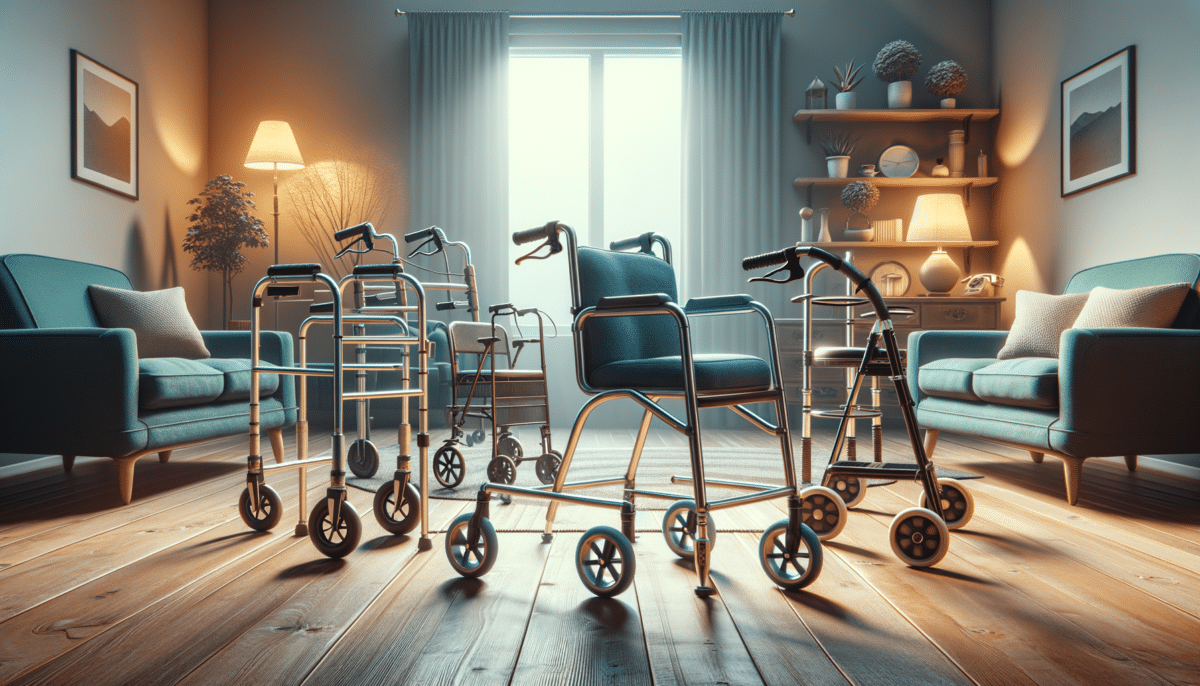Understanding the Importance of Mobility for Seniors
Mobility is a critical aspect of life, especially as individuals age. It not only affects physical health but also plays a significant role in maintaining mental well-being and social connections. For seniors, maintaining mobility can be the difference between independence and reliance on others. Walkers, as mobility aids, offer a practical solution to help seniors navigate their daily lives with confidence. They provide support, balance, and a sense of security, which is essential in preventing falls—a common concern among the elderly.
Statistics show that one in four older adults falls each year, and falls are the leading cause of fatal and non-fatal injuries among seniors. By using a walker, seniors can significantly reduce their risk of falling, thereby preserving their independence and quality of life. Moreover, walkers can help seniors engage in physical activities, which are crucial for maintaining muscle strength, flexibility, and overall health. The psychological benefits are equally important, as increased mobility can lead to enhanced self-esteem and reduced feelings of isolation.
Types of Walkers: Choosing the Right One
When it comes to selecting a walker, seniors have several options, each designed to meet specific needs and preferences. The most common types include:
- Standard Walkers: These have four non-wheeled legs providing maximum stability, ideal for those who need strong support.
- Two-Wheeled Walkers: Featuring wheels on the front legs, these walkers are suitable for those who can walk but require some assistance for balance.
- Rollators: Equipped with four wheels, a seat, and hand brakes, rollators are perfect for seniors who need a walker for longer distances and want the option to rest.
Choosing the right walker depends on several factors, including the user’s physical condition, lifestyle, and personal preferences. Consulting with a healthcare professional can provide valuable guidance in selecting the most appropriate walker, ensuring it meets the individual’s mobility needs while offering comfort and ease of use.
Features to Consider When Selecting a Walker
When selecting a walker, several features should be considered to ensure it meets the user’s needs effectively. These features include:
- Adjustable Height: Ensures the walker fits comfortably, reducing the risk of strain or injury.
- Weight Capacity: It’s important to choose a walker that can support the user’s weight safely.
- Portability: Lightweight and foldable designs make it easier for seniors to transport and store their walkers.
- Accessories: Options like baskets, trays, or cup holders can enhance convenience and functionality.
Considering these features can make a significant difference in the usability and satisfaction of the walker. Additionally, seniors should test different models to find one that feels comfortable and suits their daily routines.
Maintaining Safety While Using a Walker
Safety is paramount when using a walker, and seniors should be aware of how to use their mobility aids correctly. Here are some safety tips:
- Proper Usage: Ensure the walker is used on flat, even surfaces to prevent tipping or slipping.
- Regular Maintenance: Check the walker regularly for any wear and tear, especially on wheels and brakes.
- Clear Pathways: Keep living spaces free of clutter and obstacles that could impede movement or cause falls.
- Wear Suitable Footwear: Shoes with non-slip soles provide additional stability.
By following these safety measures, seniors can maximize the benefits of their walkers while minimizing risks, allowing them to move confidently and independently.
Conclusion: Empowering Seniors Through Mobility Aids
Walkers are more than just mobility aids; they are tools that empower seniors to lead active, independent lives. By understanding the importance of mobility, choosing the right type of walker, considering essential features, and prioritizing safety, seniors can enhance their quality of life significantly. These tools not only provide physical support but also contribute to mental well-being by promoting autonomy and social engagement. As we continue to explore advancements in mobility aids, the future looks promising for seniors seeking to maintain their independence and vitality.
